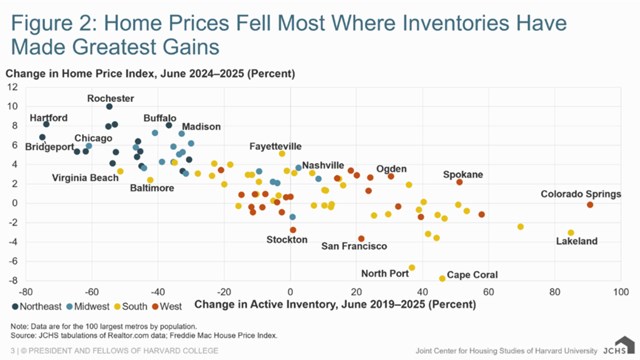After 20 years in an English Tudor in Westchester's Pelham, Bobbi and Warner Burke decided it was time to "wake up in the heart of Manhattan. We wanted chaos, color and vibrancy where we lived," says Bobbi. Without any leads for brokers, Bobbi—who had been reading the real estate section of the newspaper for a year in anticipation of a move—went into the city and visited The Corcoran Group's Upper East Side location. "I just hit the agency cold," Burke recalls. She was hooked up with Inge LaSousa, a Corcoran broker who happened to be available at that moment. "We started to look at properties that day," says Burke.
Ten months later—after extensive searches throughout many Manhattan locales—LaSousa continued to be the only broker the couple had ever wanted to work with. And, after the Burkes signed a contract for an apartment in The Metropolitan Tower, a 232-unit condo on West 57th Street, Burke says, "Had I not had Inge, we wouldn't have gotten this apartment. She was tenacious, found us the perfect apartment and made the deal work when the seller was wavering."
Ask for References
Not all buyers and sellers are as lucky as the Burkes were in finding a real estate broker without interviewing or researching the individual. Sam Andrews, an accountant who resides in Manhattan, did not do any homework about the broker he is using to purchase a one-bedroom co-op in Forest Hills. Andrews saw an ad for the space in Newsday, called the broker and subsequently fell in love with the apartment. He says he never would have chosen this broker had he not liked what she was selling.
"Her office is in a dump of a building on a very weird street. She gossips about others clients and their deals to me; it makes me wonder what she's saying about me to them. If I didn't like the apartment so much, I would've backed out of the deal because of her manner." Andrews submitted his offer weeks ago and he still hasn't gotten the contract, a problem that he traces to this particular broker.
According to Peter R. Marra, president of the William B. May Company, a real estate brokerage firm in Manhattan, "Our business is really about referrals: 80 percent of the deals we have come from recommendations. Only 17 percent of our clients come from ads." Even when a broker's name is passed on through a referral, very few clients ask for references.
Betsy Dean, senior vice president and managing director of Stribling & Associates, a Manhattan real estate brokerage firm, says, "I've been telling our brokers to get references and put them in 'pitch packages,' the marketing proposals we use to bid on exclusives. This is not usually done, but it should be." While the bottom line is the sales history of the broker, Dean stresses that a buyer or seller should also ask questions about the firm, such as on what part of the market the company focuses.
Finding a Comfort Level
Having the right credentials is just one important component that comes into play when selecting a broker. "When someone is selling their apartment," relates Kay Brover, senior vice president and director of sales for the West Side office of Douglas Elliman, "they are selling their largest single asset. They need to look for someone who speaks their 'language.'" Most brokers suggest interviewing at least three individuals before choosing to engage one of them. Brover says that a potential customer "needs to get a feeling about whether the broker has negotiating skills and find out how long the broker has been in the business." She suggests testing the broker's listening ability to see if they can "give back" information that's been given to them.
As a seller, the main question to ask of a broker, Dean suggests, is "What are you going to do for me? Ask, 'What kind of marketing will you do, what will the brokering process be on a day-to-day basis, will you advertise with a photograph, will the apartment be on the Internet, will I get progress reports, do you know the history of the property and do you know my neighborhood?'"
Ron Tardanico, director of sales at Bellmarc Companies, a real estate brokerage firm in Manhattan, feels that the individual broker is more important than the company he or she works for. "If I were a buyer," he says, "I'd look for someone with strong opinions and a formidable sense of real estate. I'd want somebody who was very numbers oriented. And if I were a seller," Tardanico continues, "I'd want someone who was particularly enthusiastic about my property!"
The Right Credentials
In New York City, most reputable residential brokerage firms are members of both the Real Estate Board of New York (REBNY), a trade association that consists of brokers, managers and agents representing properties in New York City, and the Residential Sales Council, a national organization in Chicago consisting of 43,000 realtors who have taken advanced courses towards a Certified Residential Specialist (CRS) designation.
Toni Sherman, the national president of the Residential Sales Council, says, "We are to realtors what CPAs are to accountants." In other words, Sherman's strong suggestion to the buyer or seller looking for a broker is that the CRS designation is a critical tool. "Having this credential is a sign of commitment to the industry as a career," she says. "Statistically, CRS brokers have higher volumes of sales. Consumers can feel secure that the broker has had training and experience."
Deborah Beck, executive vice president of REBNY, says that real estate brokers are "deal-making professionals. The public does not realize how seriously we view our role." In the 1980s, a group of REBNY members created the Inter Firm Forum to discuss the issues of brokering. Today, representatives from over 60 New York City real estate firms come together monthly to discuss issues within the industry. "We have a standard code of ethics," says Shari Goodstein, executive director of Goodstein Equities, Inc., a Manhattan brokerage firm, who sits on the executive committee of the Inter Firm Forum with Beck, Marra and Helene Fields, president of Manhattan-based HF International Realty, Ltd.
"Creating rules for the residential brokerage community to live by," Fields says, "works well for the public." Goodstein adds, "Because of the large percentage of co-brokering in the city, it helps to get together and talk about issues and problems. We also get to know many of the brokers in the city, which heightens our professionalism. Our goal," adds Goodstein, "is to bring buyers and sellers together."
According to Steve Henderson, a paralegal who represents co-ops and condos as transfer agent for the Manhattan law office of Wagner, Davis & Gold, P.C., a good broker can make or break a deal. "I can't communicate without brokers," Henderson states. "Attorneys may be setting up the closings, but the brokers facilitate the bulk of the process. I'm able to get so much information from the real estate brokers because of their connections. When I work with a broker who's not good, everything takes more time, closings are delayed and the closing may cost the purchaser or seller more." Henderson adds that from his vantage point, he can easily see "the difference between a broker who views his or her job as part-time and one who takes it seriously as a career."
Barbara Wagner is a freelance writer in Manhattan.






Leave a Comment